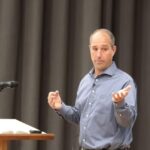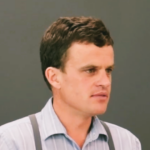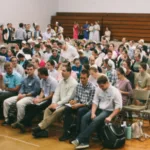In School We Trust? Part 2, Old School, New Clothes
What does Christian school do for a child that secular school does not? Perhaps the difference is often less important than we think, says Kyle. Although Christian schools avoid particular problems–for instance, Anabaptist schools do not have students watch movies or salute the flag–too often we conform to the same ideas about what knowledge is and how education happens. Kyle probes the philosophical background to modern education and pushes us to evaluate: have we dressed up modernist school in Anabaptist clothes?



Leave a Reply